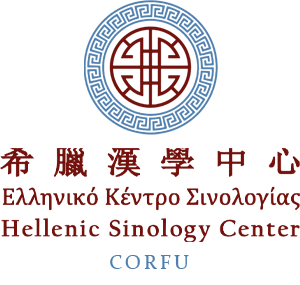Coursework and Credits
The program’s academic structure follows a combination of research and coursework (in the early phase) to support the candidate’s research progress. The total workload is designed to correspond to the expected credits/learning hours of a doctoral program (approximately 240 ECTS over 3-4 years).
Doctoral candidates are required to complete certain taught modules or courses during the first academic year (1st and 2nd semesters), aiming to bolster their research skills and domain knowledge. Explicitly, the program offers three (3) compulsory courses and a selection of nine (9) elective courses relevant to the relevant research fields, from which each doctoral candidate chooses one. There is no procedure for exemption, in whole or in part, from the obligation to attend the doctoral course program.
All coursework will be delivered in English, unless otherwise specified, in person and/or in a hybrid format and may be taken at either IU or BLCU. Both institutions recognize and credit the courses taken at the partner university as part of the Joint Ph.D. requirements. Thus, credits earned for coursework delivered in person and/or in a hybrid format by BLCU will be accepted by IU and vice versa, according to the European Credit Transfer and Accumulation System (ECTS).
TAUGHT COURSES
1. Mandatory Courses (1st and 2nd Semester)
The program includes the following three (3) mandatory courses (10 ECTS each) delivered in person and/or in a hybrid format:
1.1 SINOLOGY IN THE WESTERN WORLD (1st semester)
This course analyzes the evolution of Sinology in the West, from the earliest missionary expeditions and translations of Chinese texts to contemporary interdisciplinary approaches. It focuses on East–West relations, emphasizing cultural understanding, stereotypes, and China’s global significance.
12 three-hour lectures. Assessed via exams and/or assignments.
1.2 QUALITATIVE AND QUANTITATIVE RESEARCH METHODS (1st semester)
This course provides knowledge of qualitative and quantitative research methods. It also aims to enhance students’ research skills, critical thinking, and the ability to apply these methods to complex research questions, including those related to culture and cultural heritage.
12 three-hour lectures. Assessed via exams and/or assignments.
1.3 CULTURAL HERITAGE IN A GLOBAL CONTEXT (2nd semester)
This course examines the theoretical and practical significance of cultural heritage, with an emphasis on globalization. It focuses on the study of cultural heritage and the role of translation and interpreting in communicating heritage across cultural and linguistic boundaries.
12 three-hour lectures. Assessed via exams and/or assignments.
2. Elective Course (2nd semester)
The doctoral candidate chooses one of the following nine (9) elective courses delivered in person and/or in a hybrid format (the course with the most participants will be offered):
2.1 INTELLIGENCE HISTORY, TRADECRAFT AND MACHINERY
This course focuses on information collection and dissemination, disinformation, and related strategies, combining historical and technical approaches. It analyzes the evolution of intelligence services and their practices in the contemporary global context.
In case of choice: Doctoral candidates’ attendance is mandatory, but there are no exams or assignments.
2.2 DIPLOMACY
This course examines foreign policy tools such as cultural and economic diplomacy, approached from a cultural perspective. Students develop skills such as diplomatic sensitivity and the ability to evaluate policy options. In case of choice: Doctoral candidates’ attendance is mandatory, but there are no exams or assignments.
2.3 COMPARATIVE APPROACH TO CHINESE AND GREEK PHILOSOPHY
This course compares Chinese and Greek philosophical thought, highlighting differences, similarities, and influences on the social, political, and cultural development of East and West.
In case of choice: Doctoral candidates’ attendance is mandatory, but there are no exams or assignments.
2.4 SELECTED ISSUES IN CHINESE STUDIES I
This course examines China’s historical development, analyzing key political, social, and cultural changes. The aim is to develop a deep understanding of Chinese history, emphasizing how China—despite political upheavals and both internal and external challenges—has maintained a sense of continuity through its strong cultural traditions and Confucian values.
In case of choice: Doctoral candidates’ attendance is mandatory, but there are no exams or assignments.
2.5 SELECTED ISSUES IN CHINESE STUDIES II
This course focuses on Chinese arts and letters, analyzing literature, painting, opera, and cinema. It demonstrates how the arts influence and are influenced by Chinese cultural identity.
In case of choice: Doctoral candidates’ attendance is mandatory, but there are no exams or assignments.
2.6 LOCALIZATION AND GLOBALIZATION: CREATING LOCAL AND GLOBAL EXPERIENCES
This course examines the role of localization in adapting content for different audiences, its relationship with globalization, and the importance of cultural adaptations. Through theoretical analysis and practical application, students learn tools and techniques that foster effective communication in today’s globalized environment.
In case of choice: Doctoral candidates’ attendance is mandatory, but there are no exams or assignments.
2.7 TRANSLATION AND TECHNOLOGY
This course explores the use of technological tools—such as computer-assisted translation (CAT) tools and machine translation—to improve productivity and outcomes. Students analyze the capabilities and limitations of these tools.
In case of choice: Doctoral candidates’ attendance is mandatory, but there are no exams or assignments.
2.8 THEORY OF TRANSLATION AND INTERPRETING
This course investigates theoretical and practical issues in translation and interpreting, covering ethical, cognitive, and cultural aspects. Students acquire skills applicable in professional settings.
In case of choice: Doctoral candidates’ attendance is mandatory, but there are no exams or assignments.
2.9 ACCESSIBILITY AND TRANSLATION
This course focuses on translation practices that make content accessible to everyone, including individuals with disabilities. It covers topics such as subtitling for the deaf and hard of hearing and audio description for blind and partially sighted people, using specialized tools.
In case of choice: Doctoral candidates’ attendance is mandatory, but there are no exams or assignments.





